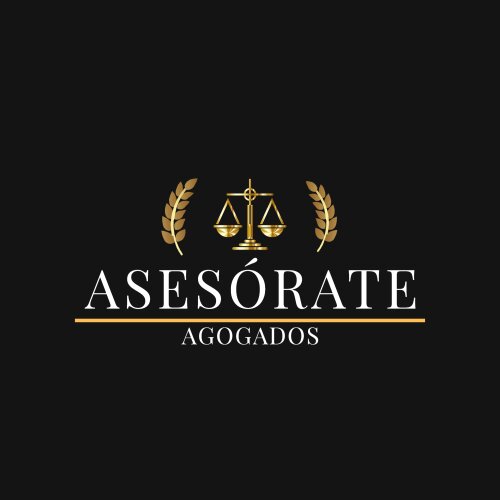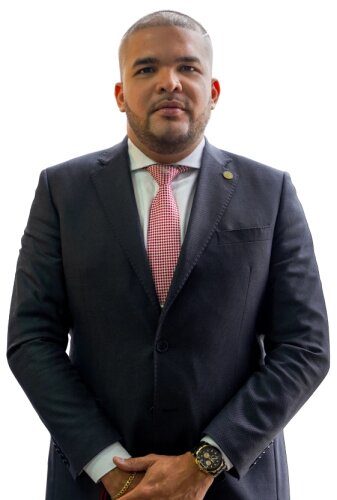Best Defamation Lawyers in Bogota
Share your needs with us, get contacted by law firms.
Free. Takes 2 min.
List of the best lawyers in Bogota, Colombia
About Defamation Law in Bogota, Colombia
Defamation is a legal concept that involves making false statements about another person or entity that may harm their reputation. In Bogota, Colombia, defamation is recognized as both a civil and a criminal matter. It covers two main forms: slander (spoken defamation) and libel (written or published defamation). Colombian law aims to balance the right to freedom of expression with the protection of an individual's honor and reputation. Whether allegations are presented in the media, online, or in person, the law provides specific procedures and remedies for victims.
Why You May Need a Lawyer
Legal support is often essential when dealing with defamation cases in Bogota. If you have been accused of defamation, or believe you are a victim of defamatory statements, a lawyer can help you understand your rights and the potential consequences. Common situations where people seek legal advice include:
- Someone publicly shares false information that damages your reputation.
- You receive a legal notice accusing you of defamation against an individual or company.
- Defamatory comments are published on social media or online forums.
- You wish to pursue damages or a retraction for defamatory statements.
- Your business suffers losses due to malicious rumors or allegations.
- You require defense against criminal charges related to defamation claims.
Defamation cases can be complex and often require collecting evidence, navigating court procedures, and understanding technicalities of local law. Professional legal guidance increases your chances of effectively protecting your rights.
Local Laws Overview
In Colombia, defamation is governed by both the Colombian Penal Code and the Civil Code. The main offenses include:
- Injuria: Refers to statements that insult or offend another person.
- Calumnia: Refers specifically to making false accusations about someone committing a crime.
Both injuria and calumnia are prosecuted criminally, and a person found guilty may face fines or imprisonment. The law allows a person accused of defamation to provide evidence (called prueba de la verdad) to show the statements were true, which may serve as a defense.
Civil actions for damages are also possible. The law requires claims to be supported by evidence and for the injury to reputation or honor to be provable. The statute of limitations for criminal complaints is typically two years from the date of the incident. Given the seriousness of these offenses in Colombia, and how rapidly online information can spread, local laws in Bogota offer a structured approach to resolve such matters.
Frequently Asked Questions
What is considered defamation under Colombian law?
Defamation includes making false statements that harm another person’s honor or reputation. It can be through spoken words (slander), written words (libel), or even images and gestures.
Can I be prosecuted for comments I make on social media?
Yes, defamatory statements made online are subject to the same laws as traditional forms of defamation in Colombia. Social media posts, comments, and even shared content can result in legal action.
What must I prove to win a defamation case in Bogota?
The victim must prove that the statements were false, caused harm, were made publicly, and referred specifically to them. If criminal prosecution is involved, the intent to defame may also be relevant.
Is truth a defense against defamation charges?
Yes, if the accused can prove that the statements made are true, it may serve as a valid defense in court, particularly for the offense of calumnia.
What penalties can be imposed for defamation?
Penalties can include fines and imprisonment, depending on the severity of the offense. Civil damages may also be awarded to the victim for harm suffered.
Does opinion count as defamation?
Generally, expressing a genuine opinion is not considered defamation, unless it is presented as fact and causes harm to someone’s reputation.
How long do I have to file a defamation complaint?
For criminal cases, the statute of limitations is usually two years from when the defamatory act occurred. Victims should seek legal advice promptly to ensure their case is not time-barred.
Can businesses sue or be sued for defamation?
Yes, businesses and organizations have legal standing in defamation cases, either as plaintiffs or defendants. Protection extends to business reputation and commercial interests.
How can damages be calculated in a defamation case?
Damages are typically based on the extent of harm to reputation, financial loss, emotional distress, and the breadth of publication. Each case is unique and must be documented thoroughly.
Do I need a lawyer, or can I represent myself?
While you may represent yourself, legal representation is highly recommended to navigate technical aspects of Colombian law, gather evidence, and maximize your chances of a successful outcome.
Additional Resources
If you need information or assistance with defamation cases in Bogota, consider the following resources:
- Defensoría del Pueblo (Office of the Ombudsman): Provides assistance for human rights, including reputation and honor issues.
- Fiscalía General de la Nación (Office of the Attorney General): Handles criminal complaints related to injuria and calumnia.
- Juzgados Civiles (Civil Courts): For civil actions seeking compensation for damages caused by defamation.
- Colegio de Abogados de Bogotá: For lawyer referrals and legal guidance.
- Superintendencia de Industria y Comercio: Handles certain defamation issues in commercial and business contexts.
Next Steps
If you believe you are the victim of defamation or have been accused of making defamatory statements in Bogota, consider the following actions:
- Document all relevant facts, including dates, content, and evidence of the alleged defamation.
- Consult with a qualified lawyer experienced in Colombian defamation law.
- Discuss available legal remedies, including criminal complaints and civil actions for damages.
- Act swiftly to respect legal deadlines and ensure your rights are protected.
- Follow your lawyer’s guidance on communicating about the matter, especially in public or on social media.
Legal issues around defamation can be complex and may have significant personal and professional consequences. Seeking tailored advice from a local legal expert is always advisable to ensure the best outcome for your situation.
Lawzana helps you find the best lawyers and law firms in Bogota through a curated and pre-screened list of qualified legal professionals. Our platform offers rankings and detailed profiles of attorneys and law firms, allowing you to compare based on practice areas, including Defamation, experience, and client feedback.
Each profile includes a description of the firm's areas of practice, client reviews, team members and partners, year of establishment, spoken languages, office locations, contact information, social media presence, and any published articles or resources. Most firms on our platform speak English and are experienced in both local and international legal matters.
Get a quote from top-rated law firms in Bogota, Colombia — quickly, securely, and without unnecessary hassle.
Disclaimer:
The information provided on this page is for general informational purposes only and does not constitute legal advice. While we strive to ensure the accuracy and relevance of the content, legal information may change over time, and interpretations of the law can vary. You should always consult with a qualified legal professional for advice specific to your situation.
We disclaim all liability for actions taken or not taken based on the content of this page. If you believe any information is incorrect or outdated, please contact us, and we will review and update it where appropriate.










